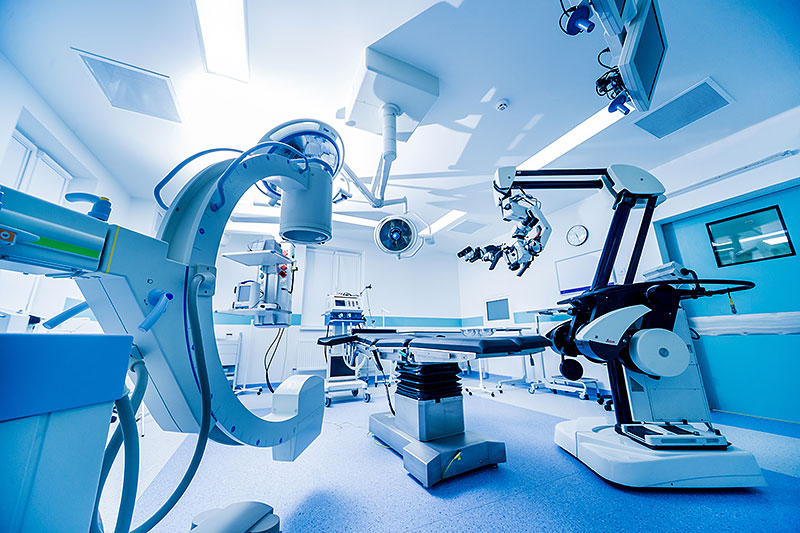The healthcare industry is rapidly embracing digital technology to enhance patient care and optimize hospital operations. A new paradigm known as the “smart hospital” is emerging that leverages data, automation, and advanced systems to revolutionize how healthcare is delivered.
Digital Transformation in Healthcare
Digitalization has already had a profound impact on many industries, but healthcare has been slower to adapt. However, that is beginning to change rapidly as hospitals realize the potential of new technologies. Smart hospitals use a wide array of digital tools and connected devices to streamline processes, centralize information, and deliver personalized care. Electronic health records, wearables, telemedicine, robotics, and artificial intelligence are being integrated into hospital infrastructure and workflows.
This digital transformation allows vast amounts of medical data to be collected, analyzed, and applied in real-time. Doctors and nurses have access to a patient’s full medical history at their fingertips, helping facilitate more informed diagnoses and treatment plans. Hospitals are also using data analytics to monitor things like equipment usage, staffing levels, and length of stays to optimize resource allocation. The influx of technologies is empowering providers with deeper insights that were not previously possible.
Improved Patient Outcomes
At the core of the Smart Hospitals model is using technology to improve clinical outcomes for patients. Advanced monitoring devices continuously track vital signs, activity levels, and other biometrics. This real-time visibility enables early detection of health changes or complications before they escalate into emergencies. When combined with predictive analytics, doctors can be proactively alerted to potential issues and intervene promptly.
Robotics and artificial intelligence also enhance surgical precision and expand access to high-quality care. For example, remote-controlled robotic systems allow complex operations to be performed remotely by experienced surgeons. AI algorithms can help analyze medical scans and biopsies, often identifying anomalies that might be missed by humans. These digital aids assist clinicians while also reducing medical errors.
Remote care technologies like telehealth likewise improve healthcare access in underserved communities. Smart home sensors give doctors insight into a patient’s daily living environment, activities, and risks—providing continuity of care once they leave the hospital. Ultimately, these types of interventions help lower costs through fewer follow-up visits, shorter hospital stays, and reduced complications.
Enhanced Patient Experience
While improving clinical outcomes is a priority, smart hospitals also focus on enriching the patient experience through technology. Intuitive mobile apps and tablets keep friends/family connected by facilitating video calls at the bedside. Digital wayfinding systems guide visitors, reducing stress over finding the right department. And interactive kiosks help register patients, disclose medical records, update insurance, and schedule appointments—reducing paperwork hassles.
Entertainment is another area that leverages technology to make hospital visits more engaging. Some facilities provide immersive virtual reality headsets to distract from pain/discomfort or provide virtual tours of the body during procedures. Integrated patient response systems with customizable buttons deliver immediate responses from staff for things like assistance, meal requests, or accessing educational resources. Overall, smart technologies are driven to empower and engage patients during what is often a stressful time.
Furthermore, smart devices collect valuable insights into the patient experience through online surveys, sentiment analysis of reviews, and usage metrics of interactive features. Combining this feedback with medical outcomes data gives hospitals a 360-degree view into what is working well and where improvements can be made. They can then optimize treatments, services, staff training, and physical environments based on direct customer input. This level of customer focus has not historically been standard for healthcare but will become increasingly important as options proliferate.
Optimizing Hospital Operations
While patient care sits at the core of the smart hospital mission, operational efficiency is also enhanced through digitalization and automation. Robot-assisted tasks like delivering meals, ferrying diagnostic samples, sterilizing equipment and more free up staff for higher-level duties. RFID tracking and sensor-based asset location systems optimize supply chain management and equipment usage—preventing wasteful spending.
Advanced building automation further saves costs through smart temperature/lighting controls, energy/water usage optimization, and predictive maintenance of mechanical systems. Integrated asset scheduling platforms avoid expensive idle times for MRI machines and surgical suites. And digital staffing tools balance patient loads with provider schedules in real-time—improving throughput while alleviating burnout risks from overwork.
From a fiscal standpoint, smart hospitals benefit greatly from the predictive analytics used to optimize patient flow, reduce readmissions, comply with insurance regulations, and coordinate aftercare protocols. Fewer snags in handoffs minimize insurance claims issues. Robust telemedicine programs help extend the hospital’s customer base too by bringing specialized care to new regions in a cost-effective way.
Smart hospitals are raising the bar for innovative, compassionate, and efficient healthcare delivery. By aggressively embracing digital technologies and data-driven strategies, these facilities are improving clinical outcomes, enriching patient experiences, and maximizing operational performance. Going forward, we can expect digital transformation in healthcare to accelerate rapidly with even more advanced applications of artificial intelligence, augmented reality, telehealth, robotics, and the Internet of Medical Things. The benefits for both providers and patients will be immense as smart hospitals revolutionize how care is delivered and received.
*Note:
1. Source: Coherent Market Insights, Public sources, Desk research
2. We have leveraged AI tools to mine information and compile it


